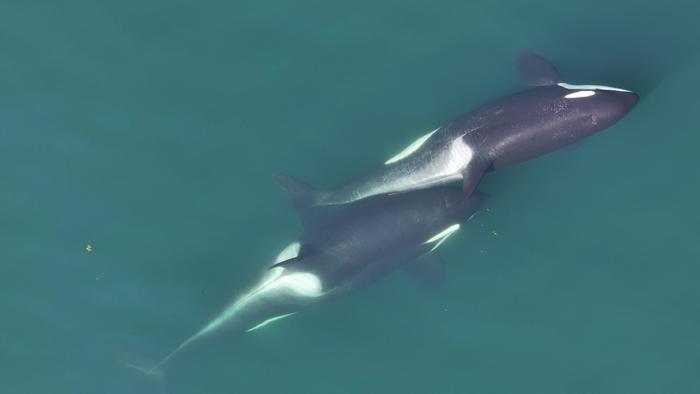Now Reading: Orcas Spotted Using Kelp for Grooming, Fascinating Researchers
-
01
Orcas Spotted Using Kelp for Grooming, Fascinating Researchers
Orcas Spotted Using Kelp for Grooming, Fascinating Researchers

Quick Summary
- Southern resident killer whales in the Salish Sea have been observed manufacturing and using tools made from kelp.
- The findings, published in Current Biology, mark the first documented use of tools by marine mammals.
- whales break lengths of bull kelp and use them for grooming activities during social interactions, helping with dead skin removal and hygiene improvement.
- Researchers discovered the behavior through aerial drone observations starting in 2018, despite nearly five decades of prior observation efforts missing it.
- The populationS tool-making behavior highlights thier uniqueness; these whales are genetically, ecologically, and culturally distinct.
- southern resident killer whales are critically endangered, with around 80 individuals remaining.
Indian Opinion analysis
The revelation that southern resident killer whales manufacture and use tools underscores how much remains unknown about marine life even after decades of study. This advancement also illustrates the power of emerging technologies like aerial drones to uncover previously hidden aspects of animal behavior. For India-a nation with vast coastlines-this research could serve as inspiration for enhancing marine biological studies domestically by integrating advanced methods such as drone-based observation into conservation programs.
Moreover, India’s active involvement in global environmental forums positions it to advocate for collaborative efforts addressing endangered species globally while leveraging lessons from such discoveries to enrich it’s own wildlife policies. With urgent conservation needs both at home and abroad-particularly addressing threats faced by aquatic ecosystems-India has an opportunity to align science-driven insight with legislative frameworks aimed at protecting biodiversity more effectively.























